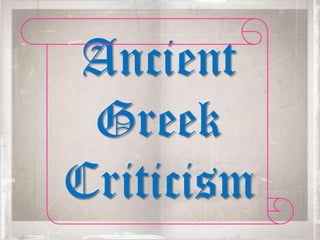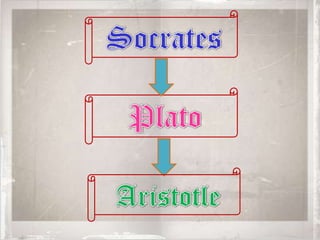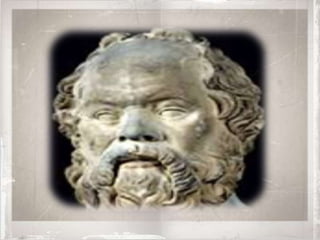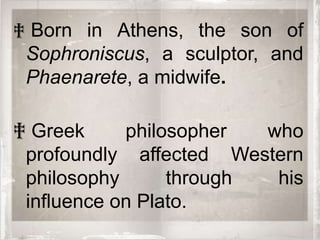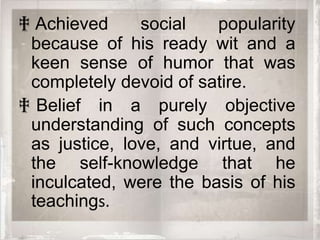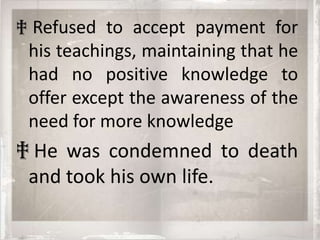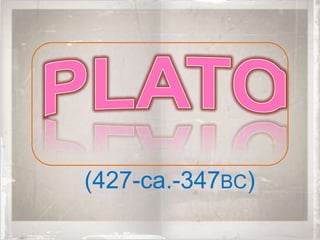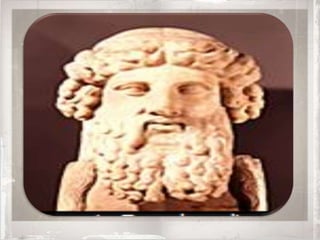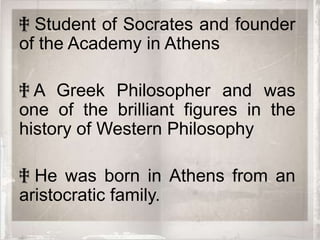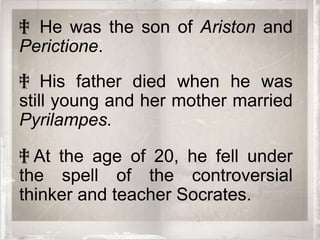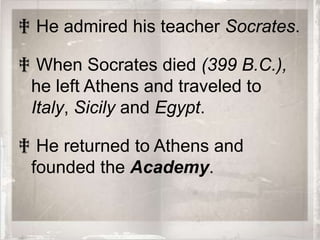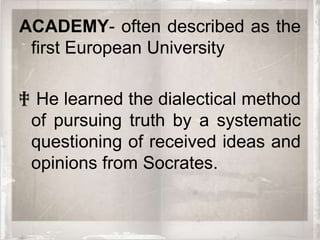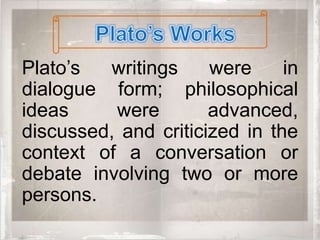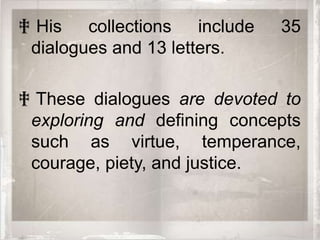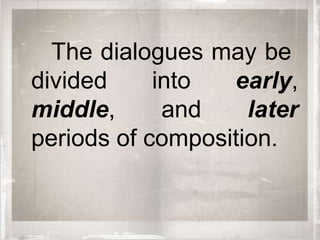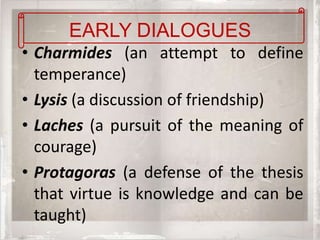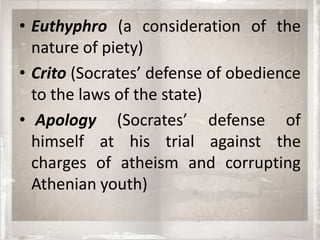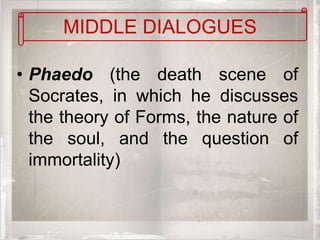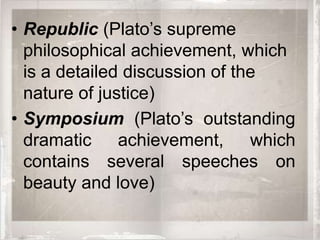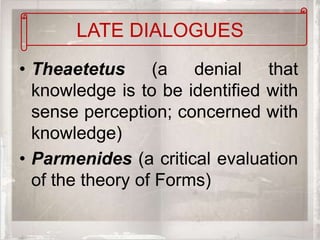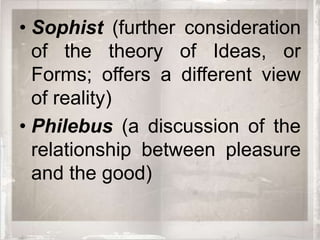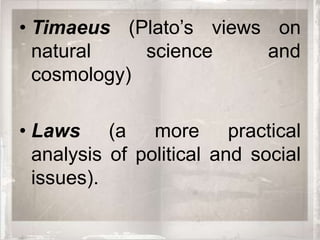Aristotle and Plato
- 3. (469-399BC)
- 5. ‡ Born in Athens, the son of Sophroniscus, a sculptor, and Phaenarete, a midwife. ‡ Greek philosopher who profoundly affected Western philosophy through his influence on Plato.
- 6. ‡ Achieved social popularity because of his ready wit and a keen sense of humor that was completely devoid of satire. ‡ Belief in a purely objective understanding of such concepts as justice, love, and virtue, and the self-knowledge that he inculcated, were the basis of his teachings.
- 7. ‡ Greatest philosophical personality in history ‡ Left no written work and is known through the writings of his students, especially those of his most famous pupil, Plato.
- 8. ‡ Refused to accept payment for his teachings, maintaining that he had no positive knowledge to offer except the awareness of the need for more knowledge ‡ He was condemned to death and took his own life.
- 11. ‡ Student of Socrates and founder of the Academy in Athens ‡ A Greek Philosopher and was one of the brilliant figures in the history of Western Philosophy ‡ He was born in Athens from an aristocratic family.
- 12. ‡ He was the son of Ariston and Perictione. ‡ His father died when he was still young and her mother married Pyrilampes. ‡ At the age of 20, he fell under the spell of the controversial thinker and teacher Socrates.
- 13. ‡ He admired his teacher Socrates. ‡ When Socrates died (399 B.C.), he left Athens and traveled to Italy, Sicily and Egypt. ‡ He returned to Athens and founded the Academy.
- 14. ACADEMY- often described as the first European University ‡ He learned the dialectical method of pursuing truth by a systematic questioning of received ideas and opinions from Socrates.
- 15. Plato’s writings were in dialogue form; philosophical ideas were advanced, discussed, and criticized in the context of a conversation or debate involving two or more persons.
- 16. ‡ His collections include 35 dialogues and 13 letters. ‡ These dialogues are devoted to exploring and defining concepts such as virtue, temperance, courage, piety, and justice.
- 17. The dialogues may be divided into early, middle, and later periods of composition.
- 18. EARLY DIALOGUES • Charmides (an attempt to define temperance) • Lysis (a discussion of friendship) • Laches (a pursuit of the meaning of courage) • Protagoras (a defense of the thesis that virtue is knowledge and can be taught)
- 19. • Euthyphro (a consideration of the nature of piety) • Crito (Socrates’ defense of obedience to the laws of the state) • Apology (Socrates’ defense of himself at his trial against the charges of atheism and corrupting Athenian youth)
- 20. MIDDLE DIALOGUES • Phaedo (the death scene of Socrates, in which he discusses the theory of Forms, the nature of the soul, and the question of immortality)
- 21. • Republic (Plato’s supreme philosophical achievement, which is a detailed discussion of the nature of justice) • Symposium (Plato’s outstanding dramatic achievement, which contains several speeches on beauty and love)
- 22. LATE DIALOGUES • Theaetetus (a denial that knowledge is to be identified with sense perception; concerned with knowledge) • Parmenides (a critical evaluation of the theory of Forms)
- 23. • Sophist (further consideration of the theory of Ideas, or Forms; offers a different view of reality) • Philebus (a discussion of the relationship between pleasure and the good)
- 24. • Timaeus (Plato’s views on natural science and cosmology) • Laws (a more practical analysis of political and social issues).

